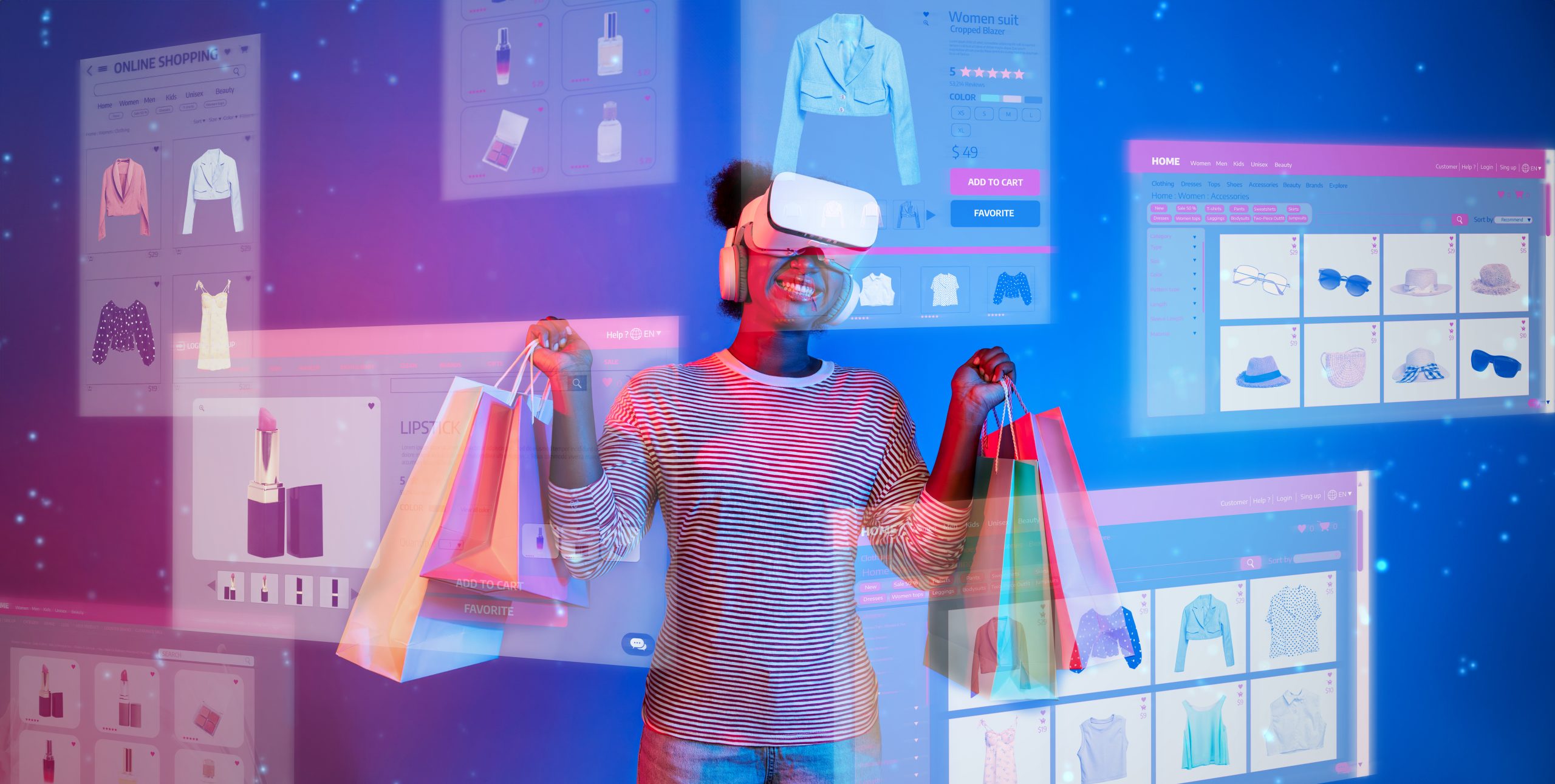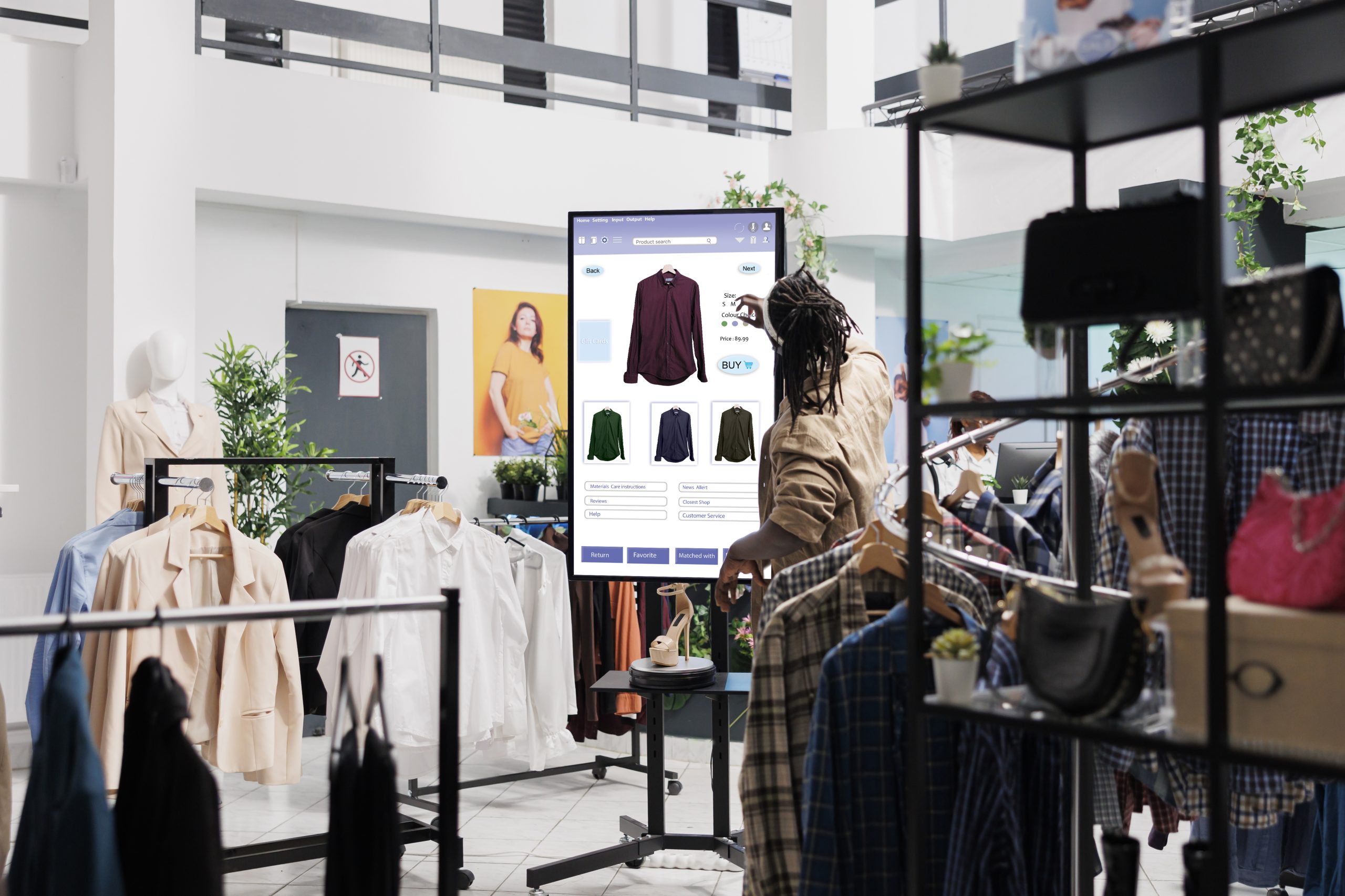Artificial intelligence is transforming the retail industry, injecting fresh energy into how businesses operate and engage with customers. Its impact spans the entire retail value chain, from personalized shopping experiences to optimizing inventory management and driving predictive analytics. By leveraging AI, retailers are not only enhancing customer satisfaction but also improving efficiency and profitability.
The scale of this transformation is evident in the numbers. A 2023 report by Grand View Research highlights that the global AI in retail market is projected to grow at a staggering compound annual growth rate (CAGR) of 23.9%, reaching over $40 billion by 2030. This rapid growth reflects the increasing reliance on AI to address challenges like shifting consumer behaviors, supply chain disruptions, and the demand for hyper-personalized experiences.

In today’s competitive landscape, adopting AI is no longer optional—it’s essential for staying ahead. Retailers that integrate AI into their strategies can create seamless omnichannel experiences, optimize operations, and respond proactively to market trends. As the industry evolves, AI offers a critical edge to those ready to embrace its potential.
In this blog, we’ll explore how AI is revolutionizing retail, focusing on its transformative impact on the industry and why adopting it is a strategic imperative for modern retailers.
1. The Evolution of AI in Retail

1.1. The story of Artificial Intelligence in retail
The journey of automation in retail has been a fascinating evolution, marked by significant milestones that have reshaped the industry. Let’s delve into this transformation:
- Early 20th Century: The Birth of Retail Automation
In the early 1900s, the retail landscape was dominated by small, family-owned stores. The introduction of cash registers revolutionized transactions, enhancing accuracy and efficiency. This innovation laid the groundwork for future advancements in retail technology.
- Mid-20th Century: The Rise of Shopping Malls and Credit Cards
The mid-1900s saw the emergence of large shopping malls, offering consumers a centralized location for diverse shopping needs. Simultaneously, the advent of credit cards transformed payment methods, introducing a new level of convenience and automation in transactions.
- Late 20th Century: The Digital Revolution
The 1990s ushered in the era of online shopping, with pioneers like Amazon redefining retail by offering a vast array of products accessible from home. This period also witnessed the development of Enterprise Resource Planning (ERP) systems, enabling retailers to integrate various business processes, from inventory management to customer relations, into a unified digital platform.
- Early 21st Century: The Advent of Artificial Intelligence
The 2000s marked the integration of Artificial Intelligence (AI) into retail, introducing intelligent systems capable of analyzing vast datasets to predict consumer behavior, manage inventory, and personalize customer experiences. AI-powered chatbots, recommendation engines, and automated checkout systems became increasingly prevalent, enhancing operational efficiency and customer satisfaction.
- Present Day: Intelligent Retail Automation
Today, AI continues to drive innovation in retail, with advancements such as automated on-model imagery, virtual dressing rooms, and personalized shopping experiences becoming standard. Retailers are leveraging AI to create seamless, efficient, and engaging customer journeys, setting new benchmarks for the industry.
The evolution of retail automation reflects a continuous pursuit of efficiency and enhanced customer experience, with each technological advancement building upon the last to create the dynamic retail landscape we navigate today.
1.2. Current trends and future projections

The future is facing AI. In 2021, the global value of the market for AI for the retail industry was $4.84 billion. Spending on developing AI for retail businesses will only increase, and it’s estimated that by 2029 it will reach as much as $52.94 billion. As AI continues to reshape the retail landscape, there are several key trends emerging that businesses cannot afford to overlook, including:
- Personalized Shopping Experiences: AI algorithms analyze customer data to offer tailored product recommendations, enhancing user engagement and satisfaction.
- AI-Powered Customer Support: Chatbots and virtual assistants provide real-time assistance, improving customer service efficiency and availability.
- Inventory and Supply Chain Optimization: AI-driven predictive analytics enable retailers to forecast demand accurately, optimize inventory levels, and streamline supply chain operations.
- Dynamic Pricing Strategies: AI analyzes market trends and consumer behavior to adjust pricing in real-time, maximizing revenue and competitiveness.
2. Enhancing Customer Experience through AI
Artificial intelligence is revolutionizing how retailers engage with customers, creating more meaningful and personalized interactions. By leveraging advanced data analysis and predictive modeling, AI enhances every step of the customer journey, ensuring seamless and engaging experiences.

2.1. AI-Powered Product Recommendations
AI-driven recommendation systems are transforming online and in-store shopping by understanding customer preferences on a granular level. These systems analyze purchase history, browsing patterns, and demographic data to suggest products tailored to individual tastes. For example:
- E-commerce platforms like Amazon use collaborative filtering to display “Customers who bought this also bought” suggestions, boosting cross-selling opportunities.
- Brick-and-mortar stores employ digital screens or mobile apps powered by AI to recommend complementary products in real-time.
The result is a highly personalized shopping experience that not only increases customer satisfaction but also drives revenue growth.
2.2. Targeted Marketing and Advertising
AI has elevated marketing from a broad-brush approach to a laser-focused strategy. Retailers now use AI to analyze customer data and craft personalized marketing campaigns that resonate with individual preferences.
- Predictive Analytics: AI predicts what customers want before they know it, allowing retailers to send timely and relevant offers.
- Dynamic Content: Platforms use AI to personalize email campaigns, website banners, and social media ads based on user behavior and interests.
- Behavioral Segmentation: AI segments audiences into micro-groups, enabling hyper-targeted campaigns that speak directly to specific customer needs.
This precise targeting results in higher conversion rates and a more engaging brand experience for customers.
2.3. Hyper-Personalized In-Store Experiences
AI is not just enhancing digital experiences; it’s transforming physical retail spaces too. By integrating AI with technologies like IoT and augmented reality, retailers are creating hyper-personalized in-store interactions:
- Smart Mirrors: AI-powered mirrors in dressing rooms recommend accessories or clothing based on what the customer is trying on.
- Facial Recognition: Some stores use AI to recognize returning customers and offer personalized greetings or tailor promotions.
- Real-Time Assistance: AI-driven mobile apps provide instant help, such as locating products or suggesting alternatives based on in-store stock levels.
These innovations create a unique, immersive shopping environment, bridging the gap between online personalization and in-store engagement.
By leveraging AI across these areas, retailers are not just meeting customer expectations—they’re exceeding them, creating loyalty and setting new standards for the retail experience.
3. Streamlining Retail Operations with AI
AI is transforming the backbone of retail operations by enabling more accurate forecasting, efficient inventory management, and seamless supply chain optimization. These advancements are helping retailers save costs, reduce waste, and improve overall efficiency in an increasingly competitive landscape.
3.1. Demand Forecasting
AI-powered demand forecasting has revolutionized how retailers predict customer needs. By analyzing historical sales data, market trends, and external factors like weather and holidays, AI can provide highly accurate forecasts.
- Improved Stock Levels: AI helps retailers maintain optimal inventory by predicting which products will be in high demand and when.
- Real-Time Adjustments: AI adapts forecasts in real-time as new data, such as sudden spikes in demand or supply chain disruptions, becomes available.
- Reduction of Overstock and Stockouts: Retailers avoid costly overstocks and minimize lost sales due to stockouts, ensuring smoother operations and better customer satisfaction.
3.2. Smart Inventory Management
AI enhances inventory management by automating processes and providing actionable insights. This leads to more efficient use of resources and better product availability.
- Automated Replenishment: AI systems can automatically place reorders when inventory levels dip below a certain threshold, ensuring shelves are always stocked.
- Dynamic Stock Allocation: AI optimizes inventory distribution across multiple locations based on real-time sales data and demand patterns.
- Waste Reduction: For perishable goods, AI predicts expiration timelines and sales velocity, reducing spoilage and waste.
By integrating AI into inventory management, retailers can achieve significant cost savings while maintaining high levels of customer satisfaction.
3.3. Supply Chain Optimization
AI is streamlining supply chains by improving logistics, tracking, and supplier management, making the entire process more efficient and responsive.
- Route Optimization: AI algorithms identify the most efficient delivery routes, reducing transportation costs and improving delivery times.
- Real-Time Tracking: With AI-enabled IoT sensors, retailers can monitor shipments in real-time, ensuring better transparency and faster responses to delays.
- Supplier Collaboration: AI facilitates better communication and planning with suppliers by forecasting demand and ensuring timely procurement.
- Risk Management: AI identifies potential risks in the supply chain, such as geopolitical issues or natural disasters, and suggests contingency plans.
These AI-driven advancements allow retailers to build a more resilient and agile supply chain, better equipped to handle today’s dynamic market conditions.
By leveraging AI across these operational areas, retailers are not only streamlining processes but also paving the way for a more sustainable and customer-centric future.
4. Reimagining the Storefront: AI’s Role in In-Store Experiences

Artificial intelligence is revolutionizing the traditional retail storefront, making in-store shopping more engaging, interactive, and efficient. By integrating cutting-edge technologies, retailers are creating futuristic shopping experiences that blur the line between the physical and digital worlds.
4.1. AI-Driven Visual Search
AI-driven visual search technology allows customers to shop using images rather than text, streamlining the process of finding exactly what they’re looking for.
- Image Recognition: Customers can take a picture of an item they like, and AI-powered systems will identify similar products available in-store or online.
- Seamless Integration: Retailers are using this technology through mobile apps or in-store kiosks, enabling shoppers to quickly locate products or find alternatives.
- Enhanced Discovery: Visual search also introduces customers to related items they might not have considered, boosting cross-selling opportunities.
This feature bridges the gap between inspiration and purchase, enhancing the overall shopping journey.
4.2. Augmented Reality and Smart Mirrors
Augmented reality (AR) and AI-powered smart mirrors are transforming the fitting room experience, making it more interactive and efficient.
- Virtual Try-Ons: Shoppers can use AR to see how clothing, accessories, or makeup will look on them without physically trying the items on.
- Style Recommendations: Smart mirrors analyze the items a customer is trying on and suggest complementary products, creating a personalized styling experience.
- Reduced Hassle: These technologies eliminate the need for endless trips to the fitting room, saving time and effort while enhancing customer satisfaction.
By integrating AR and smart mirrors, retailers are creating immersive, tech-driven experiences that encourage customers to explore and buy more.
4.3. AI-Enhanced Checkout Systems
AI is eliminating the pain points of traditional checkout processes, making them faster and more convenient for shoppers.
- Cashier-less Stores: Technologies like Amazon Go use AI to enable customers to walk-in, pick-up items, and leave without waiting in line, with payments automatically processed via sensors and cameras.
- Self-Checkout Optimization: AI-powered systems can recognize products and apply discounts or promotions instantly, minimizing errors and speeding up the process.
- Fraud Prevention: AI enhances transaction security by identifying potential fraud in real-time, protecting both customers and retailers.
These innovations are transforming the checkout process from a mundane task into a seamless, efficient experience, leaving a lasting positive impression on customers.
By integrating AI into in-store experiences, retailers are not just meeting the expectations of today’s tech-savvy customers—they’re redefining the future of physical retail.
5. AI in E-commerce Platforms
Artificial intelligence is reshaping e-commerce platforms, making online shopping more personalized, efficient, and responsive. With AI, businesses can create seamless experiences that cater to individual customer needs while staying competitive in an evolving digital marketplace.
5.1. Chatbots and Virtual Assistants
AI-powered chatbots and virtual assistants have become indispensable for e-commerce. They provide 24/7 customer support, instantly addressing queries, facilitating returns, and even helping customers track orders. These tools also enhance personalization by analyzing customer behavior and offering tailored product recommendations, significantly improving customer engagement and satisfaction. By automating routine interactions, AI allows human agents to focus on more complex tasks, improving operational efficiency.
5.2. Dynamic Pricing Strategies
Dynamic pricing is another transformative application of AI in e-commerce. Using algorithms that analyze factors such as demand, competitor pricing, and customer behavior, AI adjusts prices in real-time to maximize profitability. Platforms can also offer personalized discounts to loyal customers or those exhibiting specific buying patterns. This ability to respond quickly to market dynamics gives e-commerce businesses a competitive edge while meeting customer expectations.
6. AI for Fraud Detection and Security
As e-commerce grows, so does the threat of fraud and cyberattacks, making security a top priority. AI is playing a critical role in identifying fraudulent activities and enhancing transaction security, ensuring a safer shopping environment for customers and businesses alike.
6.1. Identifying fraudulent activities
AI systems excel at detecting anomalies in transaction data, which could signal fraudulent behavior. They analyze user behavior, flagging unusual patterns like rapid purchases, multiple failed login attempts, or inconsistent account details. Advanced AI models can even identify complex fraud schemes that traditional systems might miss, enabling businesses to respond in real-time.
6.2. Enhancing transaction security
To strengthen transaction security, AI integrates technologies like biometric authentication and encryption. Features like facial recognition and fingerprint scans provide an additional layer of protection for customer accounts. AI also assigns risk scores to transactions, ensuring that potentially suspicious activities are reviewed with greater scrutiny. These measures not only reduce financial losses but also build customer trust by ensuring their data and transactions are secure.
7. Ethical Considerations in AI Adoption
As AI becomes an integral part of retail operations, ethical concerns surrounding its adoption cannot be overlooked. Businesses must address issues related to data privacy and algorithmic bias to ensure that AI implementation is both responsible and effective.
7.1. Data privacy concerns
Data privacy is one of the most significant challenges in AI adoption. Retailers rely heavily on customer data to power AI systems, raising questions about how that data is collected, stored, and used. Transparency is key, businesses must clearly communicate their data usage policies to customers and adhere to regulations such as GDPR to avoid legal and reputational risks. Additionally, companies should prioritize minimizing data collection and using it solely for its intended purposes.
7.2. Ensuring unbiased AI algorithms
Algorithmic bias is another pressing concern. AI systems are only as unbiased as the data they are trained on. To prevent discriminatory outcomes, it’s crucial to use diverse and representative datasets. Regular audits of AI systems can also help identify and rectify biases, ensuring fair and equitable outcomes for all users. Establishing clear accountability measures is essential for addressing ethical lapses and maintaining customer trust.
By proactively addressing these ethical considerations, businesses can harness the full potential of AI while fostering a responsible and transparent relationship with their customers.
8. Real-World Stories: Retail Success with AI
In the rapidly evolving retail landscape, SmartDev has been instrumental in integrating advanced technologies to enhance operational efficiency and build consumer trust. A notable example is our collaboration with a leading European toll systems provider, where we developed an AI-powered countdown app. This application not only improved user communication through personalized avatars and messages but also showcased our capability in delivering tailored AI solutions.

Enhancing Customer Engagement with AI-Powered Tools
SmartDev partnered with a European toll systems provider to develop an AI-powered countdown app. This innovative solution featured personalized avatars and customized messages, significantly improving communication and user engagement. It demonstrated how AI can drive deeper connections between businesses and their customers.
Revolutionizing Marketplaces with Blockchain Technology
SmartDev also introduced blockchain-powered marketplace solutions, addressing key challenges like transparency and security. These solutions enable businesses to offer secure transactions, ensure traceability of goods, and create more efficient supply chains, fostering trust and confidence among stakeholders and customers alike.
Driving Innovation in Retail Operations
By integrating AI-driven analytics and automation tools, SmartDev has empowered retailers to make data-backed decisions, reduce inefficiencies, and stay competitive. Our solutions are tailored to the specific needs of retailers, helping them thrive in a fast-paced market.
Through these projects, SmartDev has demonstrated its commitment to delivering innovative, reliable, and scalable technologies that redefine what’s possible in the retail sector.
9. What’s Next: Preparing for the Future of AI in Retail
As AI continues to evolve, it is set to revolutionize the retail industry even further. Emerging technologies and innovations are creating exciting opportunities for retailers to stay ahead in a competitive market.
Emerging Technologies and Innovations
- AI-Driven AR and VR Experiences: Augmented and virtual reality powered by AI will create even more immersive shopping experiences, enabling customers to virtually try on products or visualize them in their homes.
- AI-Powered Voice Commerce: Voice assistants like Alexa and Google Assistant are set to dominate e-commerce, making shopping more accessible and seamless.
- Edge AI for Real-Time Insights: Edge computing and AI will enable real-time data processing, helping retailers deliver instant, personalized experiences.
- Sustainable AI Solutions: Retailers will increasingly use AI to optimize sustainability, from reducing waste to enhancing supply chain transparency.
Preparing for the Next Wave of AI Advancements
To leverage these innovations, retailers must:
- Invest in Scalable AI Infrastructure: Future-proofing systems to handle new technologies is critical for staying competitive. Learn more about the costs of AI development to plan your budget effectively.
- Upskill Teams: Training employees to work alongside AI tools ensures effective implementation and adoption.
- Collaborate with Tech Partners: Working with AI experts like SmartDev can accelerate innovation and drive results.
10. Looking Back, Moving Forward
AI has had a transformative impact on retail, reshaping every aspect of the industry—from how customers shop to how businesses operate. With AI, retailers have unlocked new possibilities for personalization, efficiency, and customer engagement.
As we look to the future, the message is clear: embracing AI is no longer optional—it’s essential. Retailers who integrate AI into their strategies will not only survive but thrive in an increasingly digital and data-driven market.
Now is the time to take the next step. AI offers boundless opportunities for innovation, and the sooner businesses embrace these tools, the greater their advantage will be in the years ahead.
Your Next Step: Partner with SmartDev
Are you ready to transform your retail business with AI? SmartDev specializes in developing cutting-edge AI solutions tailored to the unique needs of retailers. Whether you’re looking to enhance customer engagement, streamline operations, or innovate your marketplace, we’re here to help.
SmartDev is a leading IT outsourcing company that provides tailored AI and Machine Learning solutions, providing a powerful lending hand to transform your vision into reality. With our expertise in AI-powered solutions and healthcare applications, we can help you streamline drug discovery, enhance patient care, and drive innovation in personalized medicine. Together, let’s build scalable, secure, and effective AI tools that make a tangible impact on health outcomes.
Contact SmartDev today to start leveraging the power of AI!
REFERENCES:
Artificial Intelligence in Retail Market Size, Share & Trends analysis Report by component (Solution, Services), by technology (Machine Learning, Natural Language Processing), by sales channel, by application, by region, and segment Forecasts, 2025 – 2030. (n.d.). https://www.grandviewresearch.com/industry-analysis/ai-retail-market-report
Artificial Intelligence (AI) in Retail Market Size & Share 2032. (n.d.). https://www.fortunebusinessinsights.com/artificial-intelligence-ai-in-retail-market-101968
Luke. (2025, January 3). AI trends in retail: What to expect in the coming years. TechBullion. https://techbullion.com/ai-trends-in-retail-what-to-expect-in-the-coming-years/
Vue.Ai. (2024, January 9). A brief history of retail automation through the ages. Vue.ai Blog. https://www.vue.ai/blog/ai-in-retail/history-of-retail-automation-in-fashion/






